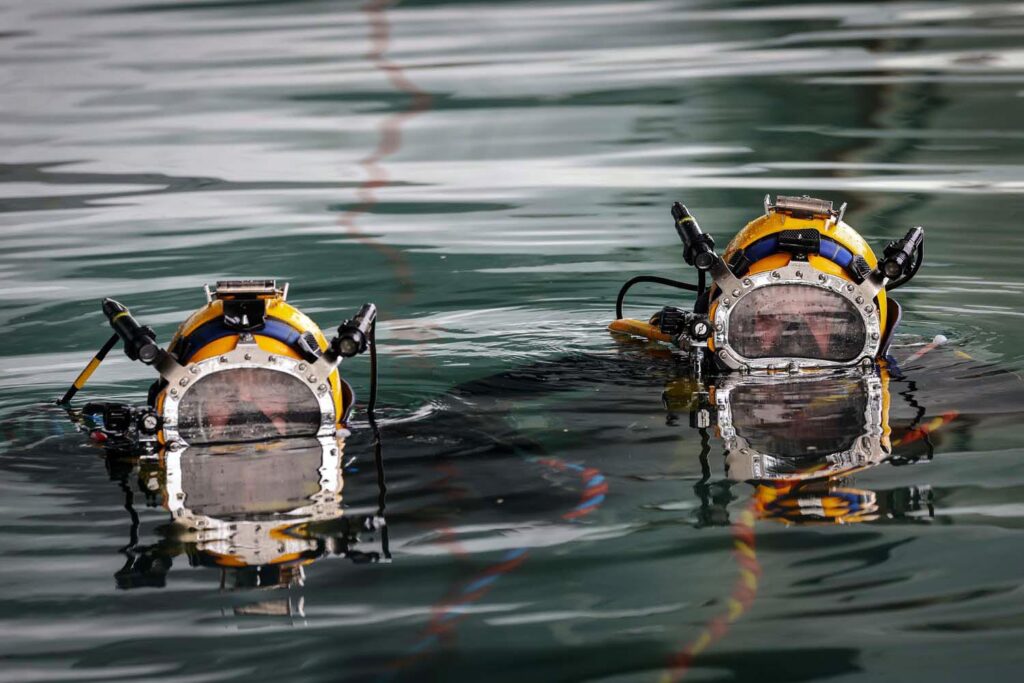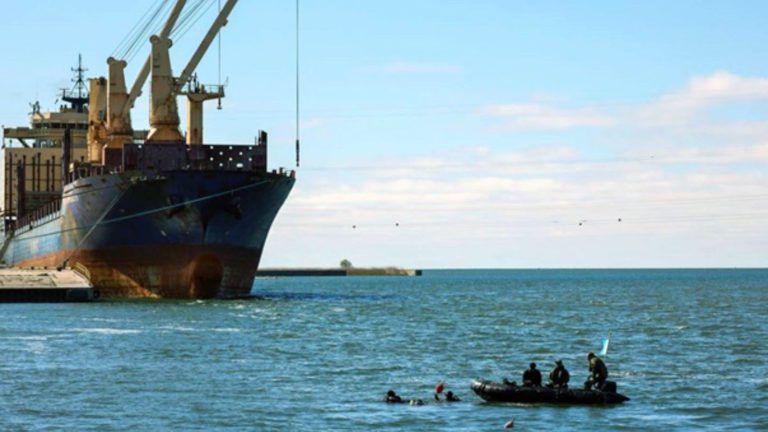With tensions high as Russia’s attempted invasion of Ukraine continues, Royal Navy divers have joined NATO allies for two weeks of bomb- and mine-disposal exercises in Lithuania – and have also taken the opportunity to clear historic ordnance around Baltic ports.
Delta Diving Unit from the Diving & Threat Exploitation Group (DTXG) based on Horsea Island in Portsmouth have been taking part in Exercise Open Spirit This has meant instructing and practising the identification and neutralisation of a range of improvised explosive devices (IEDs) on and under water, as well as ashore in various real-world scenarios.
Also read: Clearance diver exercise takes on new urgency
Working alongside Canadian, Lithuanian, US, Dutch and Estonian military divers, members of the unit also scoured ports in the region for ordnance left over from the two world wars – especially from the 1944-45 period, when intensive fighting took place in the Baltic.
DTXG has undergone a recent change in its way of operating, as reported on Divernet in March, and its training in Lithuania was designed to ensure that its divers are fully prepared for future missions.
“The relevance of what the Royal Navy and our NATO partners have been doing here in Lithuania could not be clearer,” said commanding officer Cdr Sean Heaton. “Putting Royal Navy bomb- and mine-disposal divers from the DTXG through these challenging scenarios ensures that we are operationally prepared, and able to respond with agility to any threat to UK and NATO interests.”

“The way we operate is pretty similar to our NATO allies, but working with them has taught me things and I’ve been able to share our techniques with them too,” said Able Seaman (Diver) Alex Bonato. “With current threats around the world, this work is really important. It’s about getting used to working with our partners and learning from each other.”
Exercises were made as true-to-life as possible, says the Navy, with IEDs constructed using everyday materials and planted at possible places of interest around the port city of Klaipeda. To assist their operations beneath the surface, Delta Diving Unit used robots and autonomous vessels, including Remus – a torpedo-shaped submersible able to survey and map possible ordnance.
“We have had IED tasking every day but the Lithuanians have also asked us to clear jetties and ports of historical ordnance,” said Petty Officer Alex Talbot. “There has been a nice variety and it’s been good interacting with other nations and seeing how they do things.”
“It’s been good for the young lads, some of whom are on their first multi-national deployment,” added Leading Diver Paul Rimmer. “It’s really useful for them to see some of the IEDs and mines that have been set up and to get the chance to dive in unfamiliar waters.”
Also on Divernet: MBE For Top Navy Diver, ’Inspirational’ Clearance Diver Settle Dies, RN Divers Honour ‘Last Human Minesweeper’

